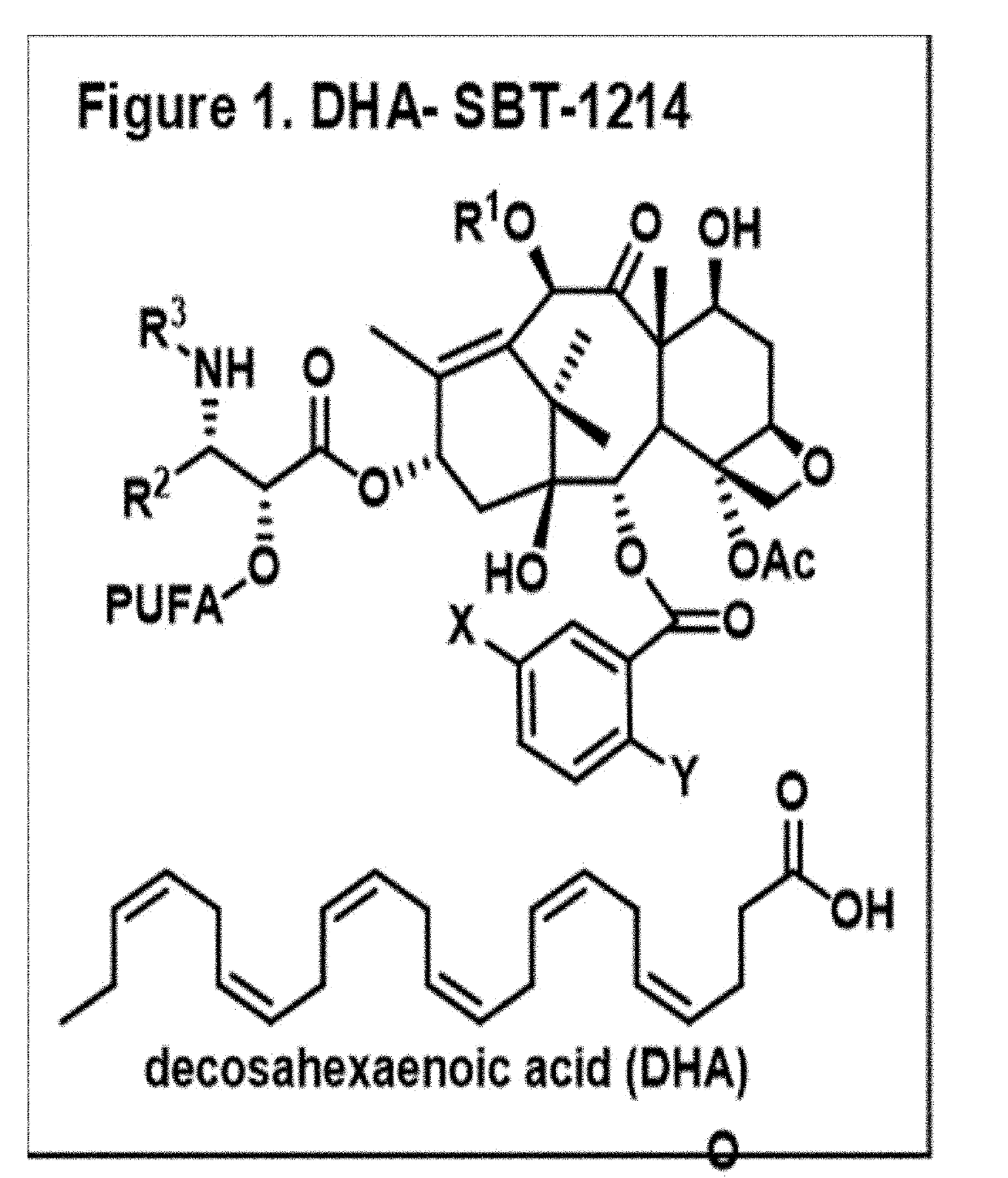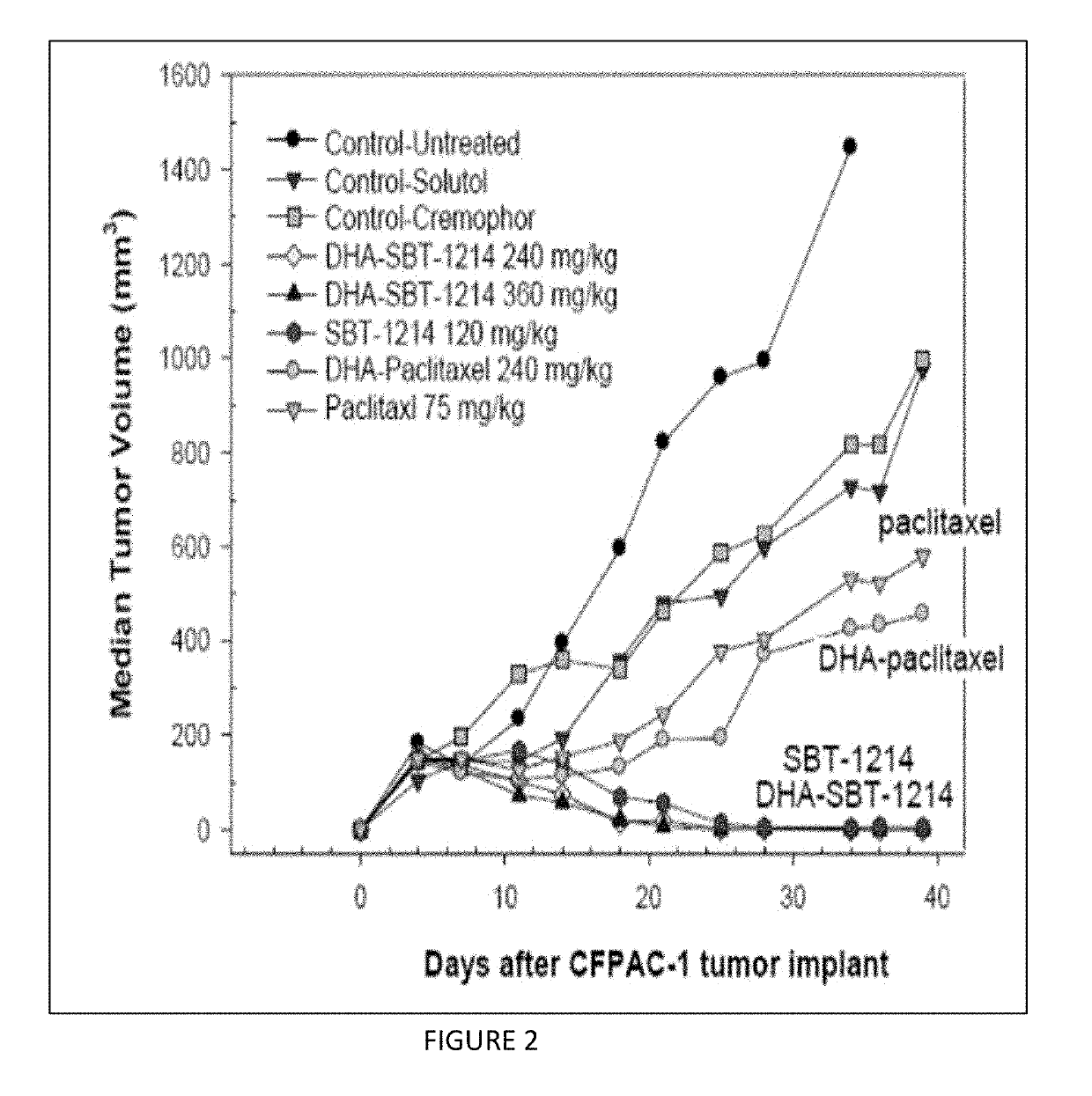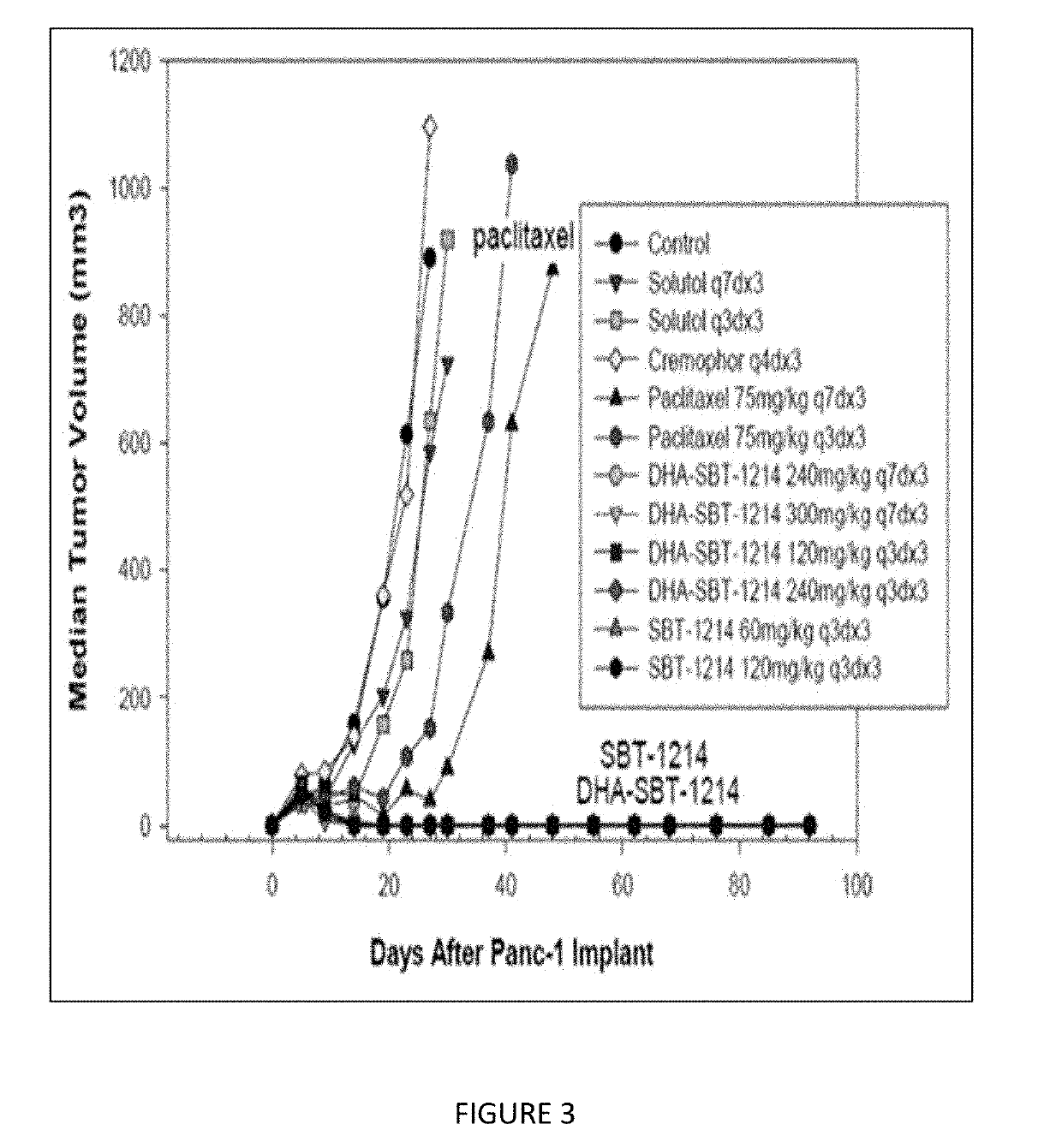Combination taxoid nanoemulsion with immunotherapy in cancer
a technology of taxoids and nanoemulsions, applied in the field of cancer treatment, can solve the problems of short durability, decreased perfusion, increased interstitial fluid pressure, low tumor response rate, etc., and achieve the effect of enhancing the therapeutic
- Summary
- Abstract
- Description
- Claims
- Application Information
AI Technical Summary
Benefits of technology
Problems solved by technology
Method used
Image
Examples
example 1
[0059]Materials and Methods
[0060]Docosahexaenoic acid conjugate of SBT-1214 (i.e., DHA-SBT-1214) was synthesized by ChemMaster International, Inc. (Stony Brook, N.Y.) following previously reported method. Extra pure grade omega-3 rich fish oil was purchased from Jedwards International (Quincy, Mass.), Lipoid E80 from Lipoid GMBH (Ludwigshafen, Germany), DSPE PEG2000 from Avanti Polar Lipids, Inc. (Alabaster, Ala.), Tween 80 from Sigma Chemicals, Inc. (St. Louis, Mo.), Dulbecco's Modified Eagle Medium (DMEM) and LAL chromogenic endotoxin quantitation kit from Thermo Scientific (Rockford, Ill.). Penicillin, streptomycin and Trypsin were obtained from Invitrogen (Grand Island, N.Y., USA). Female C57BL / 6 mice (4-6 weeks old) were purchased from Charles River Laboratories (Frederick Research Model Facility-NCI) (Cambridge, Mass., USA). Amicon Ultra-0.5 ml, Centrifugal filters from Millipore (Cork, Ireland). All other analytical grade reagents were purchased through Fisher Scientific. In ...
PUM
| Property | Measurement | Unit |
|---|---|---|
| diameter | aaaaa | aaaaa |
| diameter | aaaaa | aaaaa |
| hydrodynamic diameter | aaaaa | aaaaa |
Abstract
Description
Claims
Application Information
 Login to View More
Login to View More - Generate Ideas
- Intellectual Property
- Life Sciences
- Materials
- Tech Scout
- Unparalleled Data Quality
- Higher Quality Content
- 60% Fewer Hallucinations
Browse by: Latest US Patents, China's latest patents, Technical Efficacy Thesaurus, Application Domain, Technology Topic, Popular Technical Reports.
© 2025 PatSnap. All rights reserved.Legal|Privacy policy|Modern Slavery Act Transparency Statement|Sitemap|About US| Contact US: help@patsnap.com



